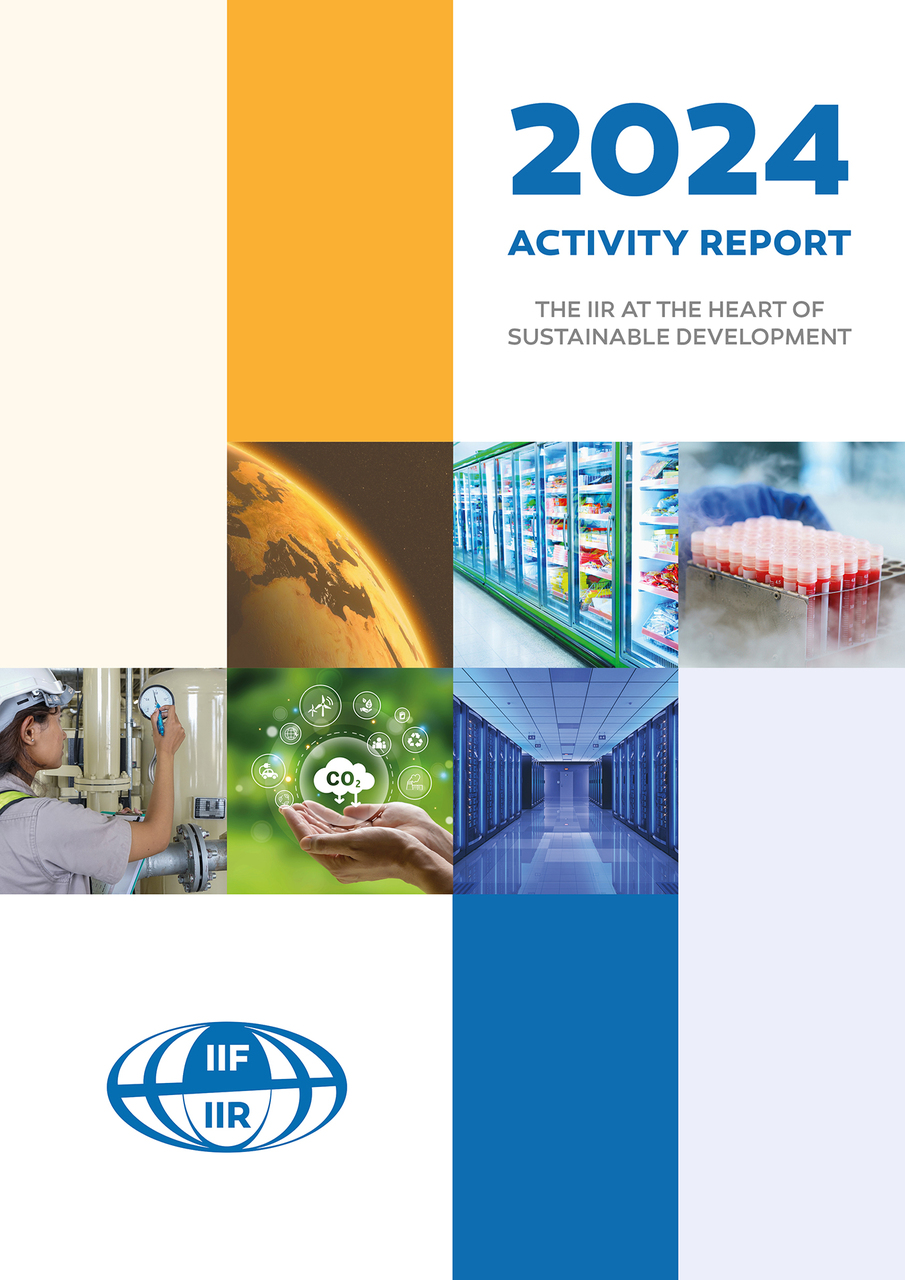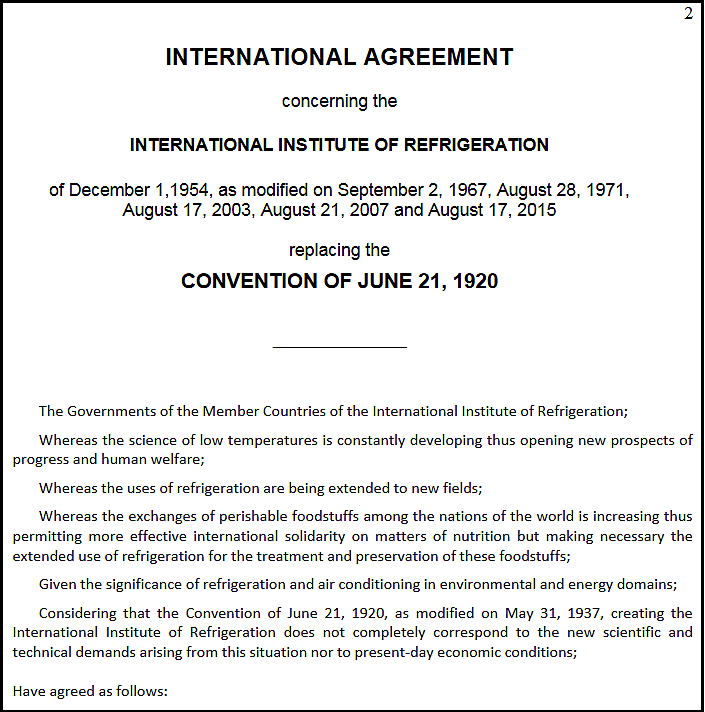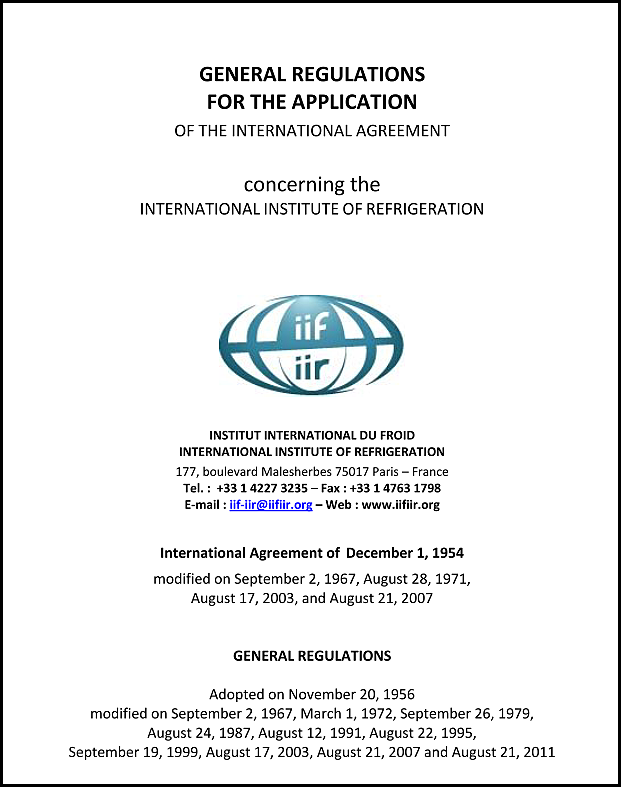IIR Presentation
Mission
The International Institute of Refrigeration (IIR) is an independent intergovernmental organisation. It is the only one in the world to gather scientific and technical knowledge in every sector of refrigeration.
Founded in 1908, the IIR has developed a worldwide network of leading experts.
It is committed to disseminating knowledge of refrigeration to improve the quality of life for all, while respecting the environment and taking into account economic imperatives.
The IIR has defined its strategic actions in line with the Sustainable Development Goals (SGDs) of the 2030 Agenda for Sustainable Development. The progress and highlights of our work, carried in collaboration with partners worldwide, are reflected in the 2024 Annual Report.
History
From the very first efforts to cool, refrigerate or preserve, which appear to have been documented as the use and cooling effects of salt-water mixtures by Syrian physician Ibn Abi Usaibia in the 13th century, the story of the IIR began long before its official inauguration.
Born from a common global objective in 1908, for more than a century the IIR has been the only organisation to accompany all refrigeration stakeholders in the journey towards tomorrow’s refrigeration.
Early 19th century – The early 19th century witnessed a sharp increase in the demand for natural ice during the summer months, particularly among breweries producing lager. In order to meet demand, suppliers began looking for alternative ways of producing ice artificially.
1835 – Although Oliver Evans was the first to document the cycle, it was Jacob Perkins, an American working in England, who first patented a machine based on the vapour-compression cycle.
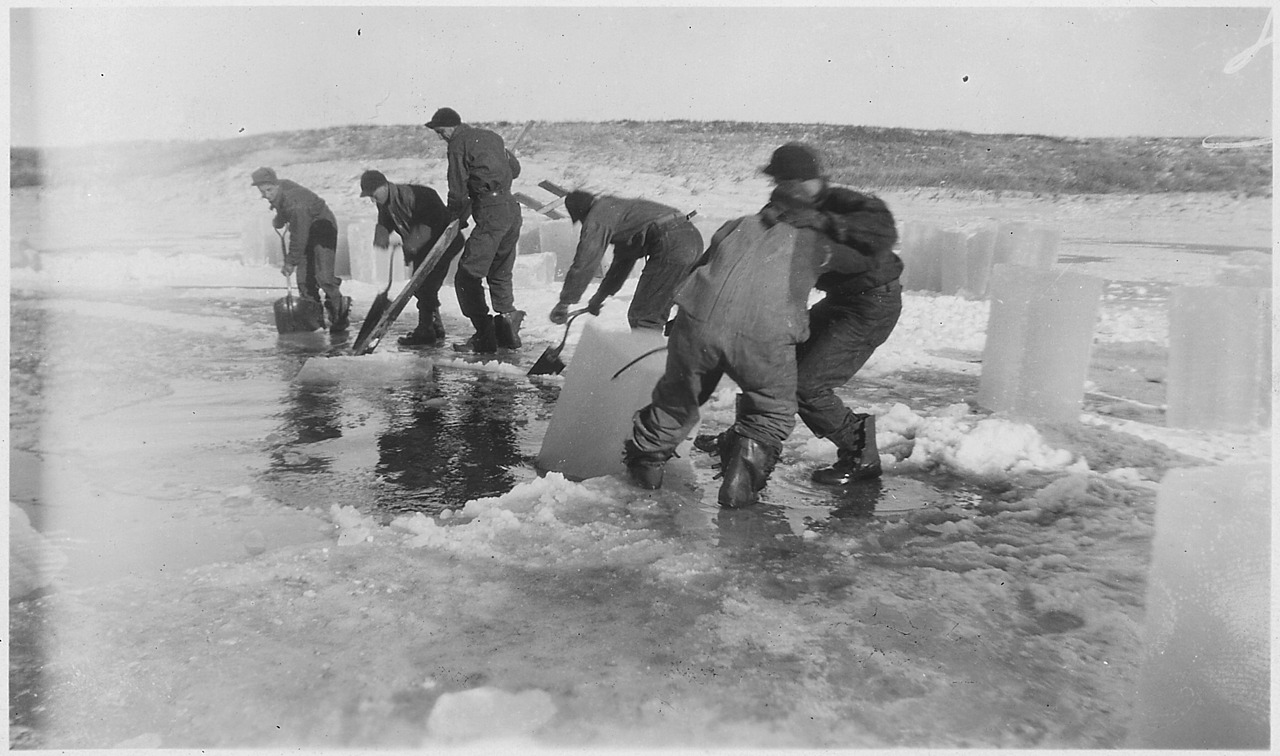
1855 – The first compression machines that proved to be successful on an industrial scale were developed by James Harrison, a Scotsman who had emigrated to Australia. Harrison’s machines revolutionised the industrial refrigeration sector and were capable of producing ice or cooling brine (a secondary refrigerant).
1859 – Frenchman, Ferdinand Carré, invented the first absorption machine which, after some adjustments, became one of the best-selling refrigerators.
1885 – This absorption machine was later replaced by a much simpler vapour-compression refrigerator, invented by French engineer Charles Tellier, that is still used today.
1877 – Low-temperature science also progressed. The last quarter of the 19th century witnessed the liquefaction of each of the permanent gases in turn.
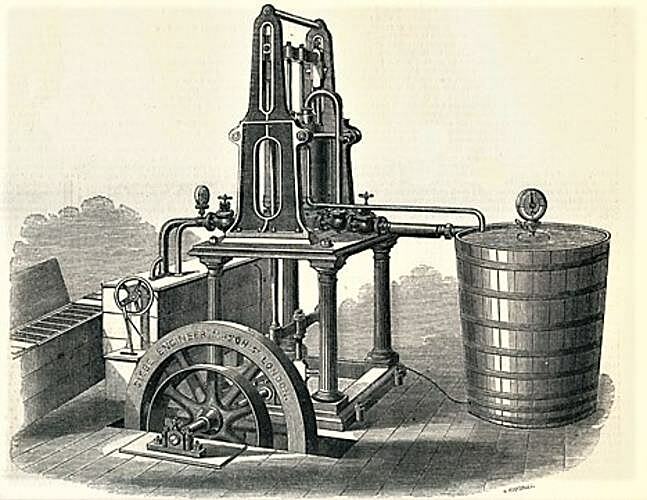
1908 – The rapidly growing, global industry and scientific quest for absolute zero lead to the 1st International Congress of Refrigeration held in Paris, France, at the Paris-Sorbonne University in October 5-10, 1908, which welcomed over 5,000 participants.
1909 – From this first Congress, the International Association of Refrigeration was born on January 25, 1909, formed by delegates from 35 countries.
1920 – June 21, 1920 the association was reorganised and officially titled the International Institute of Refrigeration – IIR, Institut International du Froid – IIF, in French.
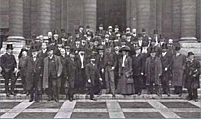
1954 – 1956 – Due to the changing global political environment, the IIR Statutory Bodies were defined by an International Agreement signed on December 1, 1954 and General Regulations for the Application of the International Agreements signed on November 20, 1956.
Present – Since then, the IIR has been operating at its headquarters based in Paris (France) and has become the leading world organisation for expertise on refrigeration. The Institute has continued to run the International Congress of Refrigeration every four years since its inauguration and has now expanded its conference series portfolio covering a vast variety of refrigeration topics. Working alongside governments, today the IIR remains committed to promoting knowledge on refrigeration for sustainable development, and continues to provide key services to disseminate information on associated technologies to all stakeholders (companies, universities, professionals...).
Staff
General management
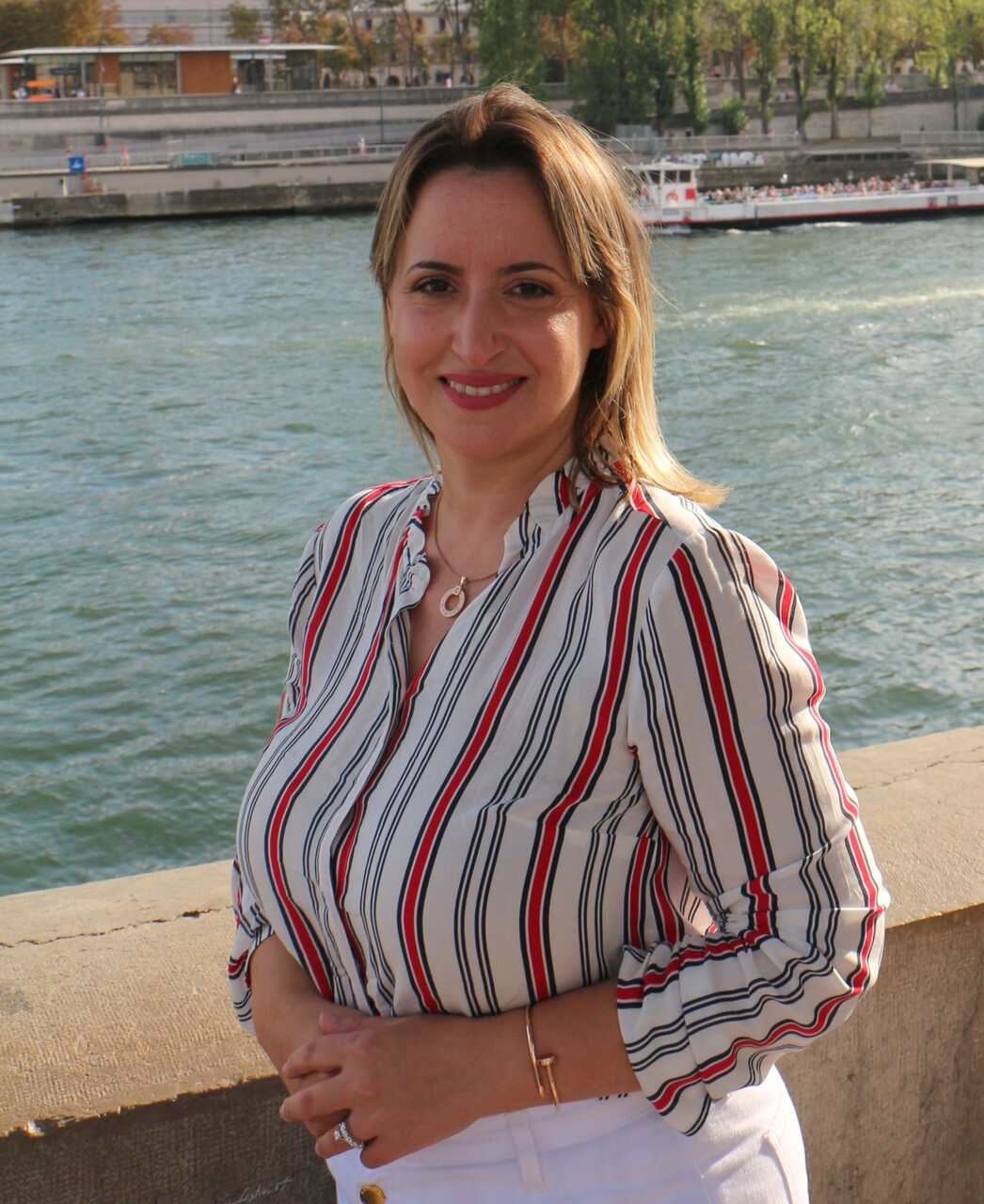 Dr.-Ing. Yosr Allouche
Dr.-Ing. Yosr Allouche
Director General
Secretariat
Vally Sullimann - Accounting and Membership Manager
Sandrine Blondeau - Personal Assistant to the Director
Information systems
Pascal De Vernati - Information Systems Manager
Scientific and Technical Information Department (STID)
Souhir Hammami - Director of Department
Dr. Monique Baha - Scientific Writer
Aurélie Durand - Information Specialist
Nella Nabila - Engagement and Science Communication Specialist
Natalia Gomes - Technical Translator
Communications and marketing
Eleanor Regin - Head of Department
Policy and global partnerships
Marco Duran - Head of Department
Perrine Estorges - Research and Policy Intern
EU and international programmes
Dr. Ina Colombo-Youla - Head of Department
Madeleine Edl - Senior Cooling Project Manager
Dr.-Eng. Anna Pacak - Research Fellow

